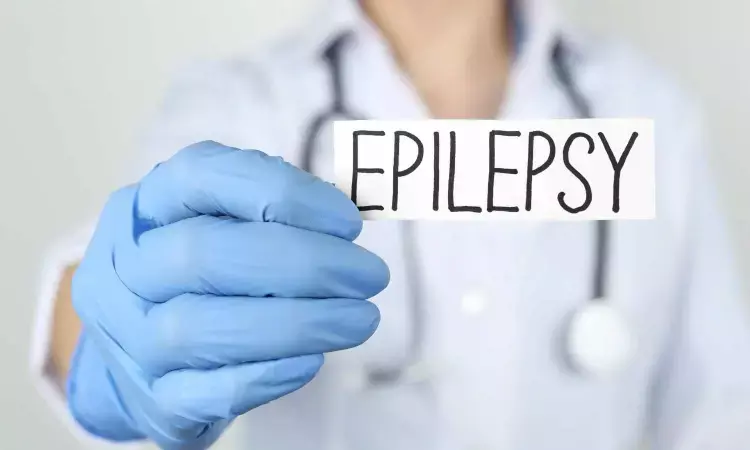- Home
- Medical news & Guidelines
- Anesthesiology
- Cardiology and CTVS
- Critical Care
- Dentistry
- Dermatology
- Diabetes and Endocrinology
- ENT
- Gastroenterology
- Medicine
- Nephrology
- Neurology
- Obstretics-Gynaecology
- Oncology
- Ophthalmology
- Orthopaedics
- Pediatrics-Neonatology
- Psychiatry
- Pulmonology
- Radiology
- Surgery
- Urology
- Laboratory Medicine
- Diet
- Nursing
- Paramedical
- Physiotherapy
- Health news
- Fact Check
- Bone Health Fact Check
- Brain Health Fact Check
- Cancer Related Fact Check
- Child Care Fact Check
- Dental and oral health fact check
- Diabetes and metabolic health fact check
- Diet and Nutrition Fact Check
- Eye and ENT Care Fact Check
- Fitness fact check
- Gut health fact check
- Heart health fact check
- Kidney health fact check
- Medical education fact check
- Men's health fact check
- Respiratory fact check
- Skin and hair care fact check
- Vaccine and Immunization fact check
- Women's health fact check
- AYUSH
- State News
- Andaman and Nicobar Islands
- Andhra Pradesh
- Arunachal Pradesh
- Assam
- Bihar
- Chandigarh
- Chattisgarh
- Dadra and Nagar Haveli
- Daman and Diu
- Delhi
- Goa
- Gujarat
- Haryana
- Himachal Pradesh
- Jammu & Kashmir
- Jharkhand
- Karnataka
- Kerala
- Ladakh
- Lakshadweep
- Madhya Pradesh
- Maharashtra
- Manipur
- Meghalaya
- Mizoram
- Nagaland
- Odisha
- Puducherry
- Punjab
- Rajasthan
- Sikkim
- Tamil Nadu
- Telangana
- Tripura
- Uttar Pradesh
- Uttrakhand
- West Bengal
- Medical Education
- Industry
Increased exposure to antiseizure medicines in third trimester may decrease adaptive functioning scores in children

In a groundbreaking investigation, the Maternal Outcomes and Neurodevelopmental Effects of Antiepileptic Drugs (MONEAD) study sheds light on the potential impact of fetal exposure to antiseizure medications (ASMs) on childhood outcomes. They found that the adaptive functioning of children born to epileptic mothers on widely-used antiseizure medications (ASMs), showed no significant difference compared to children born to women without epilepsy.
The study results were published in the journal JAMA Neurology.
The correlation between fetal exposure to antiseizure medications (ASMs) and childhood outcomes remains unclear. Hence, researchers from the U.S.A. conducted a multicenter, prospective, observational cohort study to investigate the link between fetal exposure to ASMs and subsequent outcomes related to adaptive, behavioral, emotional, and neurodevelopmental disorders at 2, 3, and 4.5 years of age.
The study, conducted at 20 epilepsy centers in the US, enrolled 456 pregnant women with and without epilepsy between December 2012 and January 2016. the present study called The Maternal Outcomes and Neurodevelopmental Effects of Antiepileptic Drugs (MONEAD) study followed the children of participant women with formal assessments at 2, 3, 4.5, and 6 years of age.
The primary focus of the study was the Adaptive Behavior Assessment System, Third Edition (ABAS-3) General Adaptive Composite (GAC) score at 4.5 years and comparing the children of epileptic and non-epileptic mothers.
Findings:
- There were 302 children born to epileptic mothers and 84 children born to mothers without epilepsy in the study.
- Astonishingly, the overall adaptive functioning of children born to women with epilepsy, taking commonly used ASMs, did not significantly differ from that of children born to women without epilepsy.
- However, the study uncovered a nuanced relationship between ASM exposure and functioning.
- An exposure-dependent association was identified, with a significant decrease in functioning correlated with increasing third-trimester maximum ASM blood concentrations.
- Notably, this association was particularly evident for two commonly prescribed ASMs: levetiracetam and lamotrigine.
- Specifically, levetiracetam exhibited a substantial decrease in functioning as its third-trimester maximum blood concentrations increased. Similarly, lamotrigine displayed a decrease in functioning with rising concentrations.
The findings recommend a heightened emphasis on psychiatric or psychological screening and referral for women with epilepsy and their offspring, emphasizing the importance of tailored care during pregnancy. The study concludes by highlighting the necessity for additional research to validate and build upon these significant findings, underscoring the need for a more comprehensive understanding of the potential impact of fetal exposure to ASMs on childhood neurodevelopmental outcomes.
Further reading: Cohen MJ, Meador KJ, Loring DW, et al. Behavioral Outcomes and Neurodevelopmental Disorders Among Children of Women With Epilepsy. JAMA Neurol. Published online November 20, 2023. doi:10.1001/jamaneurol.2023.4315
BDS, MDS
Dr.Niharika Harsha B (BDS,MDS) completed her BDS from Govt Dental College, Hyderabad and MDS from Dr.NTR University of health sciences(Now Kaloji Rao University). She has 4 years of private dental practice and worked for 2 years as Consultant Oral Radiologist at a Dental Imaging Centre in Hyderabad. She worked as Research Assistant and scientific writer in the development of Oral Anti cancer screening device with her seniors. She has a deep intriguing wish in writing highly engaging, captivating and informative medical content for a wider audience. She can be contacted at editorial@medicaldialogues.in.
Dr Kamal Kant Kohli-MBBS, DTCD- a chest specialist with more than 30 years of practice and a flair for writing clinical articles, Dr Kamal Kant Kohli joined Medical Dialogues as a Chief Editor of Medical News. Besides writing articles, as an editor, he proofreads and verifies all the medical content published on Medical Dialogues including those coming from journals, studies,medical conferences,guidelines etc. Email: drkohli@medicaldialogues.in. Contact no. 011-43720751




